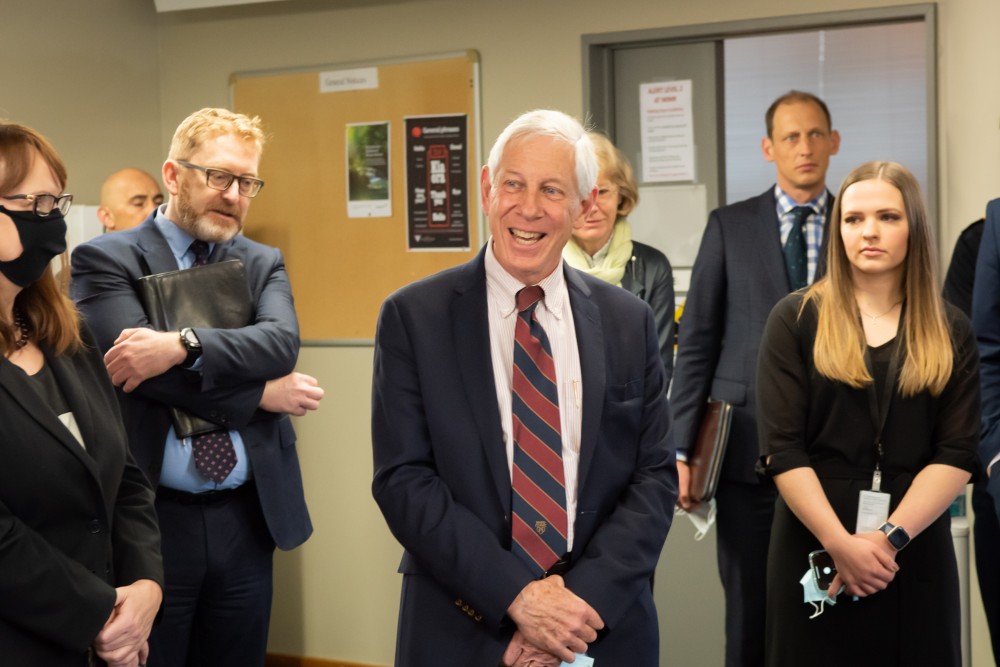9 June 2021
Associate Professor John Carter MNZM, Trustee and long-time collaborator and supporter of the Malaghan Institute, died on 2 June 2021, surrounded by his family.

In his role his role as head of the Wellington Blood and Cancer Centre, John was an early ally in the Institute’s first cancer immunotherapy trials in the late 1990s and has remained a close friend and colleague since, helping guide the Institute in transforming its research into the clinic. In 2003 he was appointed to the Institute’s Trust Board and was recently appointed Deputy Chair.
“John gave us the confidence to pursue the role of the immune system in curing cancer. And he was deeply knowledgeable about how to work within the New Zealand health and regulatory ecosystem,” said Director Professor Graham Le Gros.
“At the governance level, he brought real people skills and the appropriate specialist perspective in guiding the Institute in its overall ambitions to be New Zealand’s Mayo Clinic of the South Pacific, New Zealand’s centre for health research, benefiting the community.”
“John’s role in guiding the Institute’s science and clinical developments have been immeasurable,” said Board Chair Graham Malaghan. “His engagement as a trustee earned him great recognition and appreciation from all his colleagues for his knowledge and wisdom, he will be sorely missed.”
Malaghan Institute Clinical Director and fellow haematologist Dr Rob Weinkove said that as well as being a deeply committed and relentlessly cheerful clinician, John was an enthusiastic supporter of research and teaching.
“John was instrumental in building the clinical haematology service in Wellington, particularly the bone marrow transplantation service. This, as well as his encouragement of research, helped to bring the very first cellular therapy trials to the Malaghan Institute. He remained a keen supporter of our research for decades, and was campaigning on behalf of the CAR T-cell programme in recent weeks. His commitment to patients, enthusiasm for research, dedication to teaching and development, laconic humour, and sage advice will be greatly missed.”
Deputy Director and Cancer Immunotherapy Programme Leader Professor Ian Hermans said he’ll always remember John’s erudition.
“When asked to comment on anything, his responses were always well considered, clear, and always, always, respectful. There was also the endless enthusiasm – and the grin. It was only with John’s energy and expert guidance that we conducted our first clinical trials. When we had issues, I’d often seek out John for advice. Those discussions always ended with a clear plan and a new sense of optimism. I’m sure many of us at the Institute have similar memories. He was a mentor to many – we’ll miss him a lot.”
